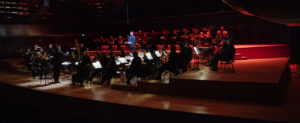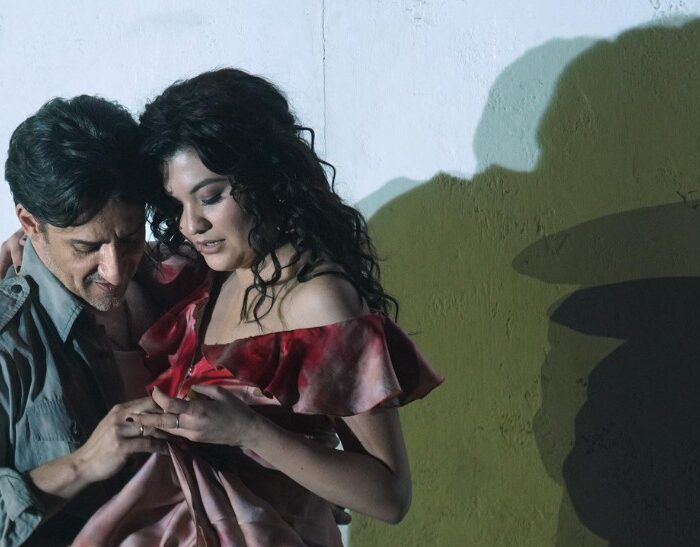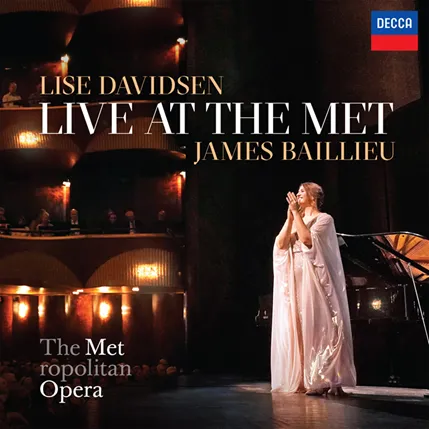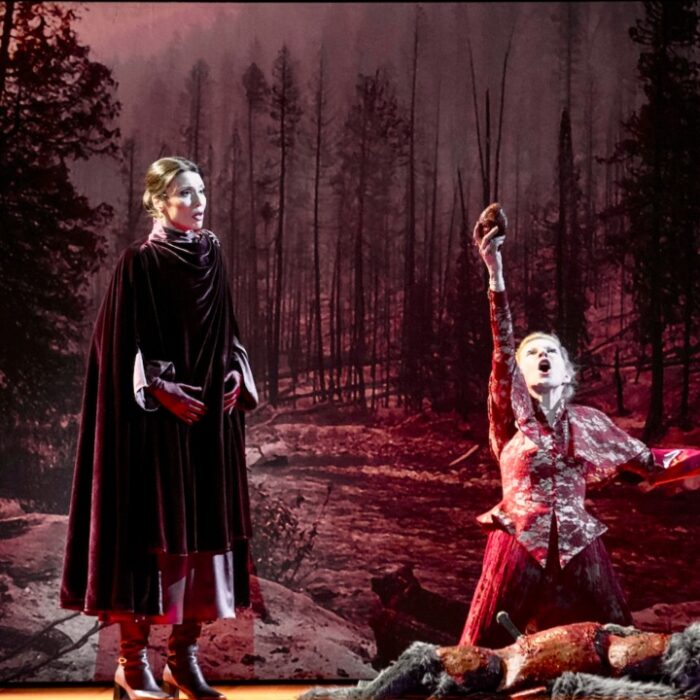
Les Arts Florissants 2022-23 Review: Orphée et Eurydice
Ana Vieira Leite, Julie Roset, and Reinoud Van Mechelen shine in Les Arts Florissants’ concert version.
By João Marcos CopertinoPhoto: William Beaucardet
It was the third production of Gluck’s “Orphée et Eurydice” in Paris this season; still, it sounds like a completely different opera each time.
Les Arts Florissants is arguably the most well-regarded historically informed group in France, so it was with not a little anticipation that I entered the Philharmonie de Paris building for this “Orphée.”
First, it was a delight to hear the French version of “Orphée” in its original orchestration, without modernizations or drastic interventions. The orchestration sounded exuberant, and the beauty of the music was, at many moments, unmatched.
Part of the greatness of Les Arts Florissants is how their instruments preserve a sense of beauty and fragility in constructing their sound. It is not as if their musicians are in peril of committing a mistake. Still, they can express themselves, exploring precisely this edge moment between beauty and delicacy.
The entrance to the Champs-Élysées in the second act—with an amazing flute solo from Gabrielle Rubio—sounded as if it were the most perfect and brittle crystal, so frail that a mere glance might destroy it. This effect is not created by any musical weakness but by an artistic awareness that the beauty, especially in Gluck’s music, might reside in an unstable perfection. The musical instant is, for this group, an artisan’s work measured by the millimeter.
This sense of beauty only enhanced the dramatic and disheartening interventions of the voices of Tartarus and grief in Gluck’s score. If anything, Paul Agnew’s conducting made “Orphée” a game of contrasts: beauty and harshness, strength and fragility. It was all there just for our delight.
Although this was a “concert version” of the opera, all concerts have scenic elements—even the most ordinary piano recitals are theatrical. In that category, the night was not satisfying. There was an effective lighting design, but it was uncertain how much the singers were or were not supposed to act. Two of them were singing with a score in their hands—which is disappointing but allowed.
Trio of Soloists Shine
Ana Vieira Leite has a tender instrument and brought us a Eurydice with a full lyric voice and much interaction with the score. Her interventions were extremely satisfying, and her confrontation with Orphée—much in accordance with all the staging—stressed how Gluck’s work is more allegorical than symbolic. Her singing, especially when singing along with the chorus, expressed a candor that made Eurydice an emblem of virtue.
Julie Roset, as Amour, was also a delight. Her voice is not dissimilar in tone and color to Leite’s, so there were two lyric sopranos for the night. This similitude of the voices created an interesting effect in which Love and the loved one are not so different. Roset sang her first act aria with much charisma and great phrasing. I particularly enjoyed the extremely careful delivery of her coloratura.
However, it is undeniable that the great star of the night was Reinoud Van Mechelen. Gluck’s “Orphée” is a great saga for, whoever is in charge of the leading role, but it is considerably harder for the tenor or haute-contre voice. That difficulty, first associated with the many changes in tuning since the eighteenth century, led Berlioz to rearrange “Orphée” for a mezzo voice in the nineteenth century.
Mechelen did not try to hide the difficulty of the score for him but made that difficulty a way to express Orphée’s suffering. The beauty of a phrasing sung with ease is changed by a voice that is, like the orchestra, at the limits of its expression. Mechelen has an exceptionally bright and sharp higher range that resonated very well in the Philharmonie hall. Needless to say, his French was impeccable.
However, two small comments might reflect this critic’s biases more than Mechelen’s abilities. The performance could have benefitted from better legato and better conduction of musical phrases. It might have been the Philharmonie’s acoustics. Still, often, after the beginning of a syllable, he made a diminuendo in the vowel sound that muted his voice, preventing listeners from enjoying a musical phrase as a whole.
The second thing is that, sometimes, Mechelen seemed to my ears to overstress the meaning of a word—singing “tendre” with diminuendo risks sounding redundant. Again, this might be a matter of taste.
The chorus was extraordinary, to say the least. All their scenes only enhanced the beauty of Gluck’s music. The opening chorus, especially, was extraordinarily beautiful and sorrowful.
Overall, there are few times that one can hear the music of Gluck with such delight, performed as well as it was by Les Arts Florissants.


